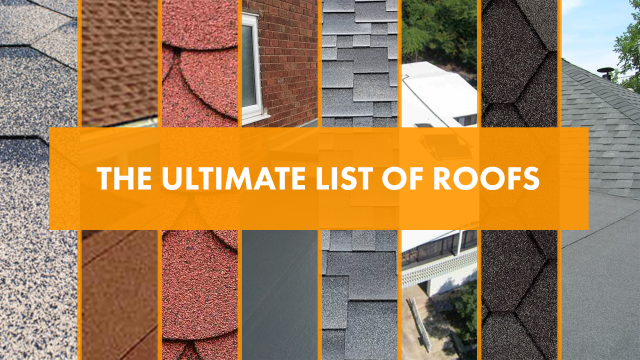
The Ultimate List of Roofs
With so many buildings in the world, there are an endless amount of roof types, in this article we'll cover the most common roofs. We'll cover the most common residential roof styles, then a few commercial styles for good measure. At the end of each section we'll of course recommend the right solar mounting solution for each kind of roof!
Pitched VS Flat Roofs
So you've got yourself a structure huh? Chances are the structure has a roof, and if so it falls into one of two categories for defining the slope of a roof: Pitched and Flat. Sure you may have a dome, octagon, or dodecahedron but for our purposes, we're assuming you've got yourself a more typical kind of roof.
What makes a roof pitched or flat? And how much variance is there within those parameters? Pitched roofs always have a peak, they're the roofs your kid will probably draw onto their heartwarming doodle of your family and house. Flat roofs are typically associated with commercial buildings but are commonly found in residential applications as well. The trick to flat roofs is that they aren't actually flat, they maintain a slight slope to divert rainwater off the roof.
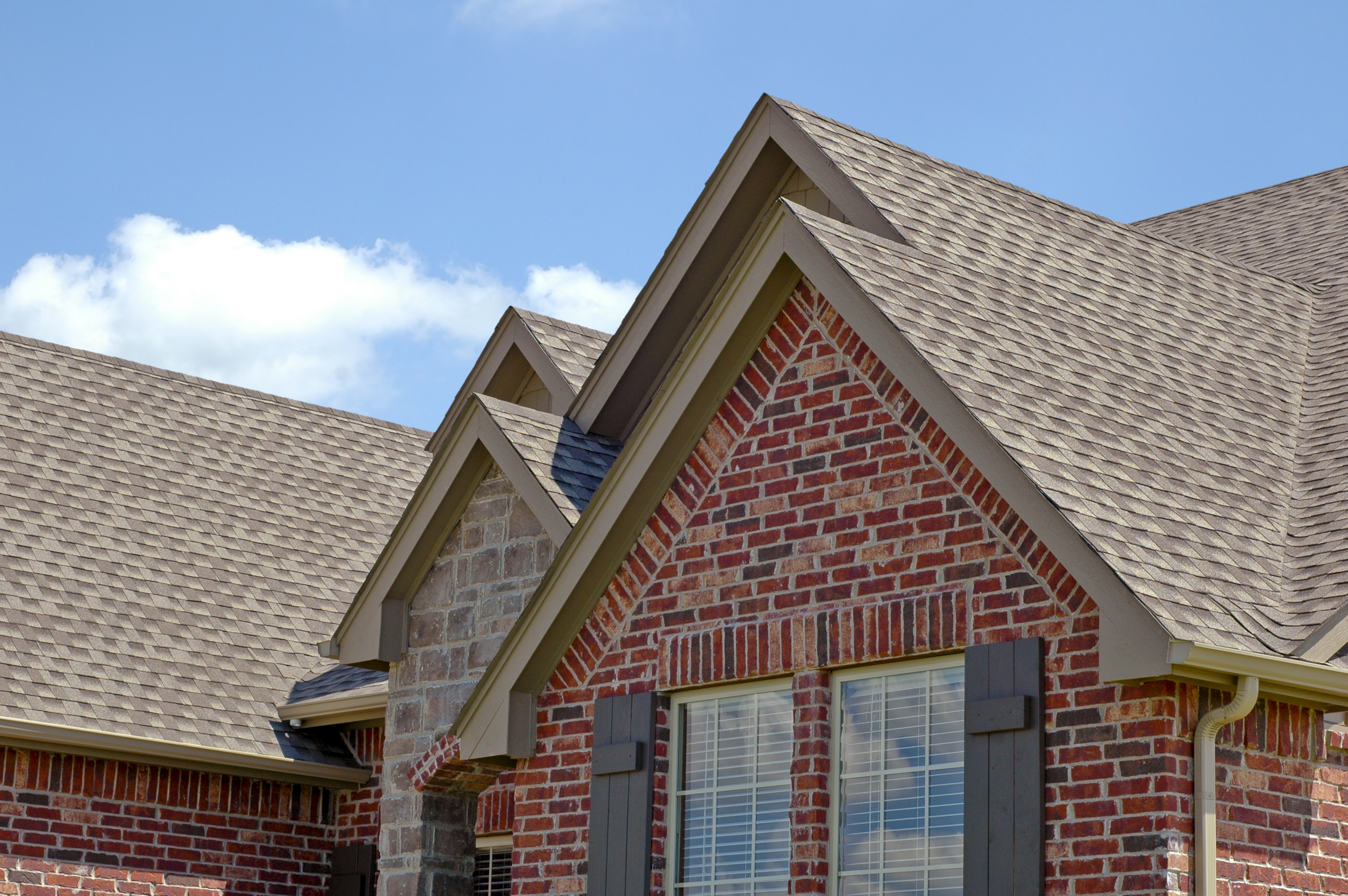
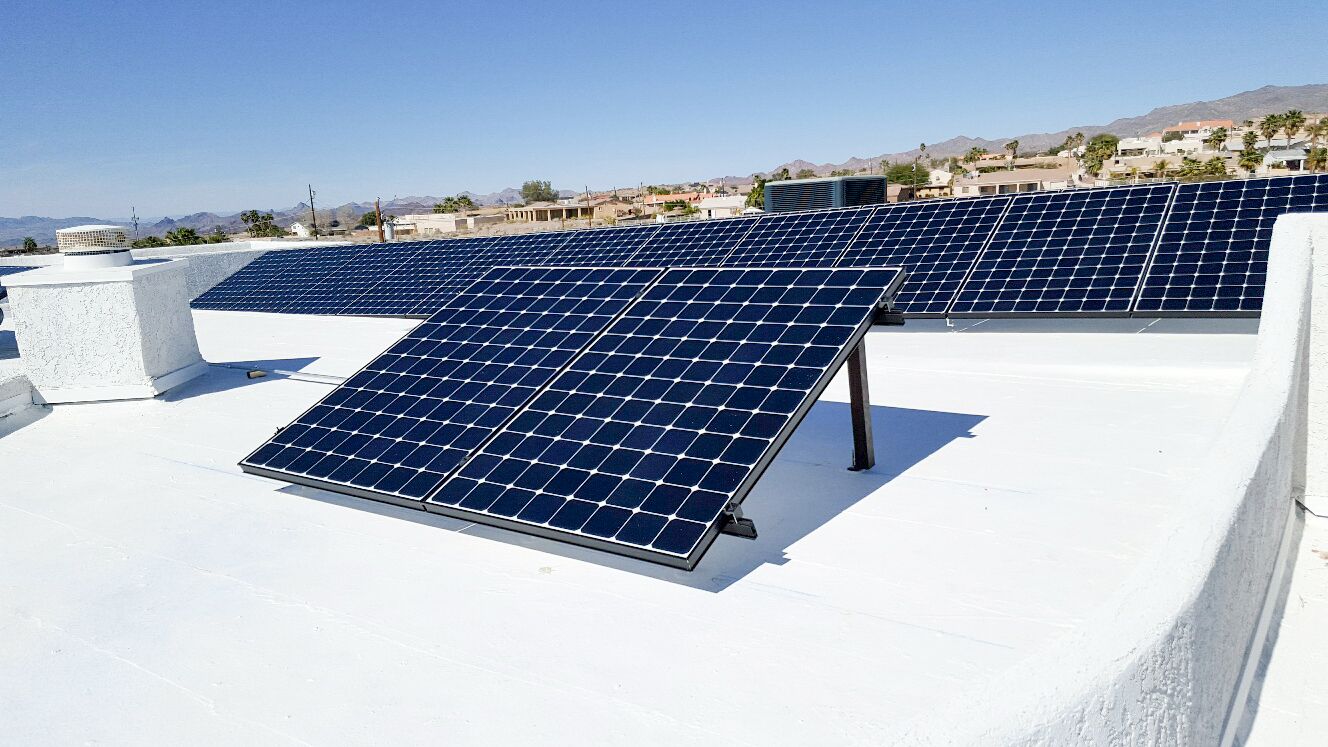
There are pros to both roof styles regarding installation and maintenance costs. Flat roofs are less expensive, and simpler to install but the lower slope makes them prone to leaks which require routine maintenance. Pitched roofs are more complex to build but typically less expensive to maintain as environmental causes for wear and tear usually slide right off the roof. Once a builder has decided on the slope of a roof, they will decide on the roofing material.
There are a large variety of roofing materials today that make for a whole spectrum of aesthetic and functional outcomes. Metal roofs, tile roofs, composite roofs, and the new age rubber roofs are just a few of the most common types we see in modern construction. We'll start with the most common type of roofing in the United States: composite shingle roofing.
Composite Roofs
Composite roofs are made of some combination of bitumen and granules and used on pitched and flat roofs. The most familiar example is asphalt shingle roofing, with architectural or dimensional style being the most recognizable. Rolled asphalt would be the most recognizable alternative, though it is more commonly seen on commercial buildings. These roofs strike a balance between aesthetics, lifecycle, and cost.
Popular manufacturers include GAF, CertainTeed, and OwensCorning - with so many options to choose from, the versatility of the shingle aesthetic lends to their popularity as a roofing material. They have a clean look, and newer styles can really mix it up if you want your roof to pop!
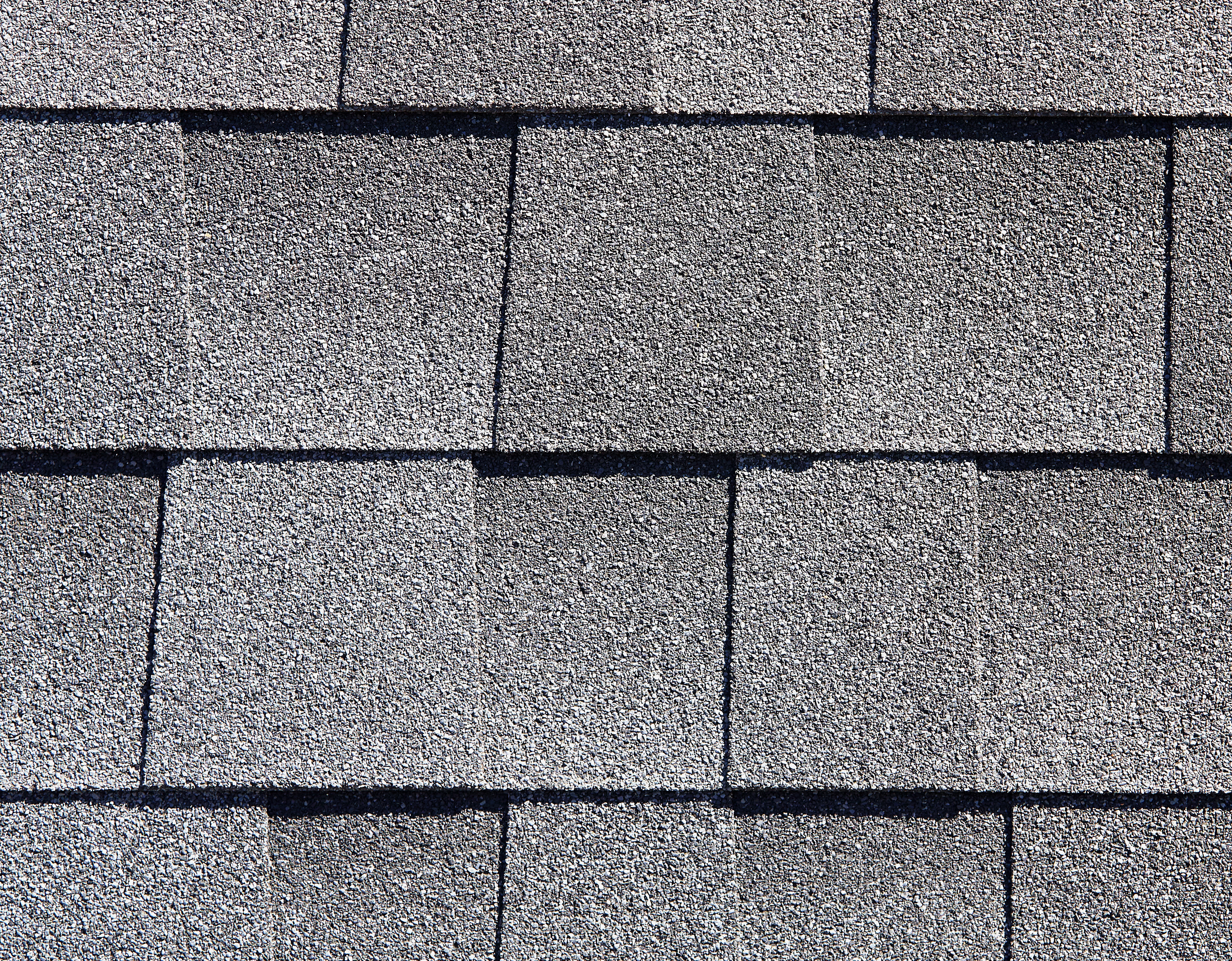
Most asphalt shingle roofs last 25-30 years, and patching will help to prevent a full re-roofing beyond that time period. A well-maintained composite shingle roof can last up to 50 years, though that is on the very high end of the lifecycle.
Homeowners who live in regions with heavy wind opt for this type of roofing because it is securely fastened to the roof with factory-included adhesives and then nails/staples.
For solar installers, composite roofing materials can offer the simplest installation conditions, especially if opting for more modern solutions that mount over the shingle, like our super popular QB2. Installers used to lift up shingles to install sheet metal flashings but would run the risk of weakening or ruining shingles that are somewhat worn. We're glad that's becoming a thing of the past too!
View our composite and asphalt shingle solar mounting solutions catalog page here.
Tile Roofs
Tile roofs are the second most popular roofing material found in the United States. Tile roofs are loved for their aesthetics and lifecycle, though the curved styles can be fragile to work with if you're inexperienced.
"Spanish tile" roofs dominate the southwestern United States because of the southwest's proximity to South America and the region's historical architectural styles. The southwest has the perfect climate for tile as it can get very hot which won't threaten the material (concrete or clay), while high winds and snow are not common occurrences. If you live in areas outside of the southwest, especially areas with Tornados, you'll be surprised to find any tile roofing at all. Tile roofs commonly lack any fastening method and instead rely on the weight of the tile to keep it in place on the roof.
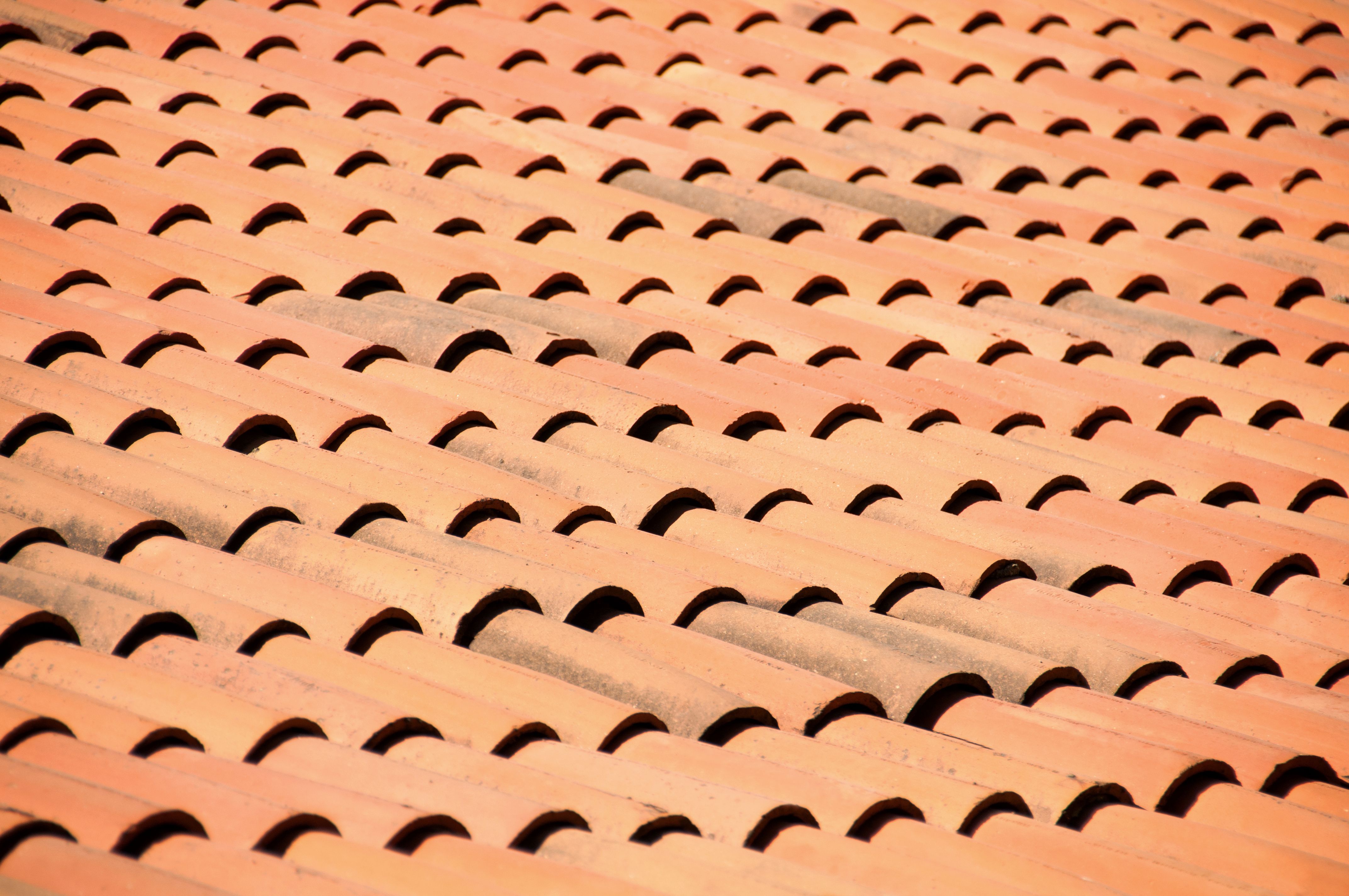
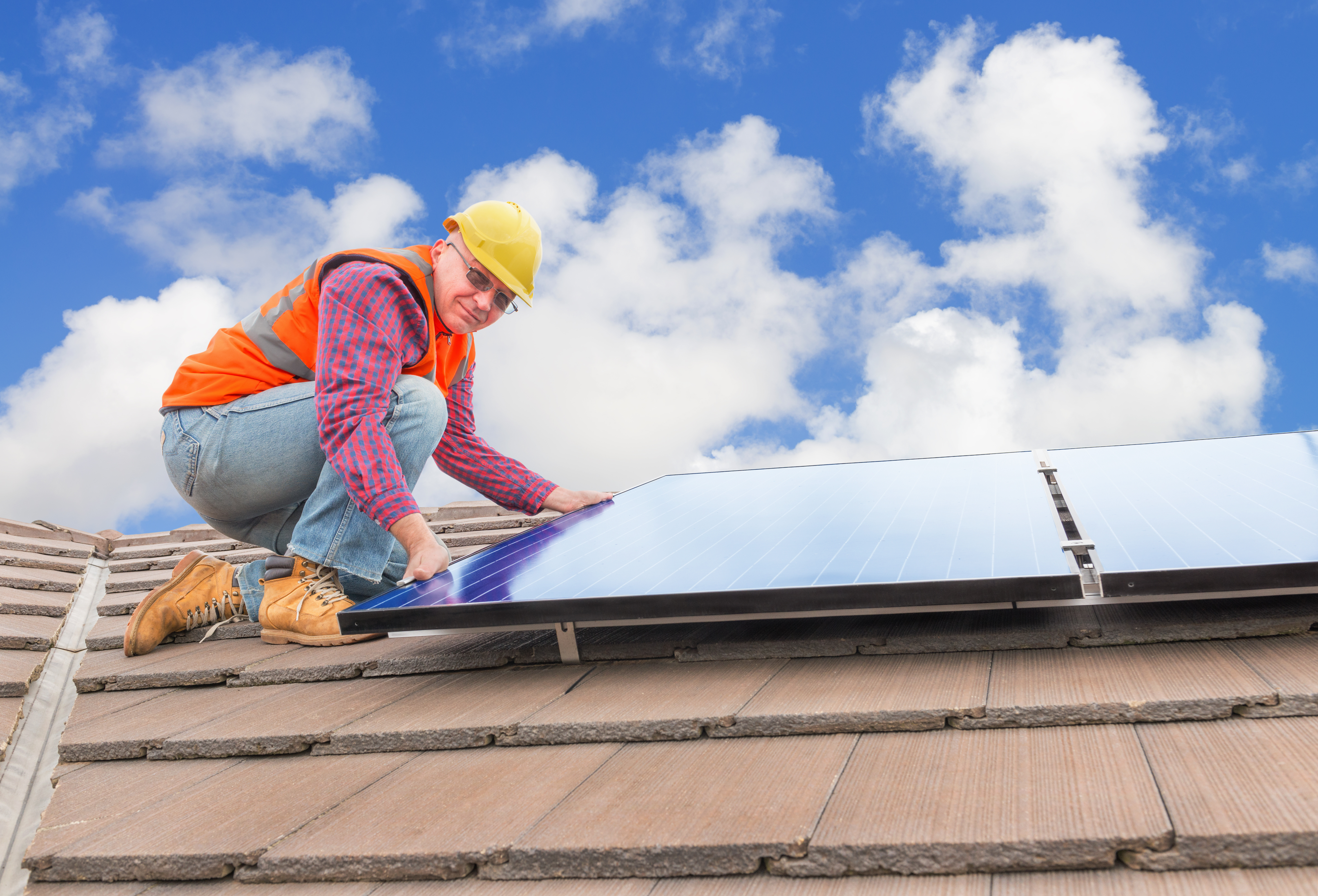
Tile roofs can be more expensive than composite roofs, typically due to their lifecycles and the nature of the manufacturing process which requires more raw materials. If installed properly and maintained tiles can last 100 years, and often longer!
Curved tiles are notoriously difficult to work with once installed because they can crack. A common adage is that if you look at them the wrong way, tiles will crack. A little attention and experience go a long way on tile roofs, pay attention and you'll be dancing around the roof elegantly without a care in the world.
In the world of solar mounting, this is especially relevant as installers need to navigate their way around the roof and install mounts without destroying tiles. Historically the most popular way to install solar on tile roofs was to drill right through the tile to reach the substrate and install standoffs. This method is very prone to cracking tiles so the industry has largely shifted toward tile hooks.
QuickBOLT helped pave the way for this change that simplifies the process for installers, the only modification to the tile required is grinding to allow tiles to rest flush on the hooks. Watch the install video below, then check out our tile roof solar mount solutions catalog page here.
Metal Roofs
The metal roofing category includes the largest variety of styles compared to other categories. Metal roofs come in countless shapes and configurations, manufactured using a whole range of methods. Metal roofs also find themselves comfortably in residential and commercial applications like composite roofing.
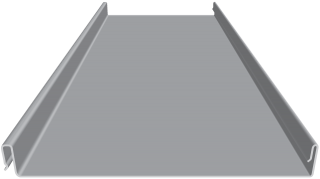
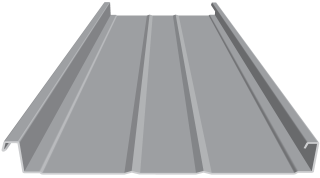
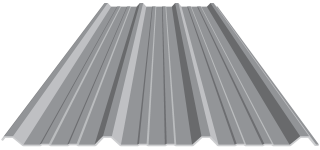
Their durability, cost, and lifecycle make them a great choice for roofing and are becoming more in vogue than ever before. Popular panel styles for regions that receive snow are trapezoidal, standing seam, split seam, ribbed, and corrugated metal. There are many many more but those are some of the most commonly used for their ease of install and ability to let snow melt and rain runoff the roof easily.
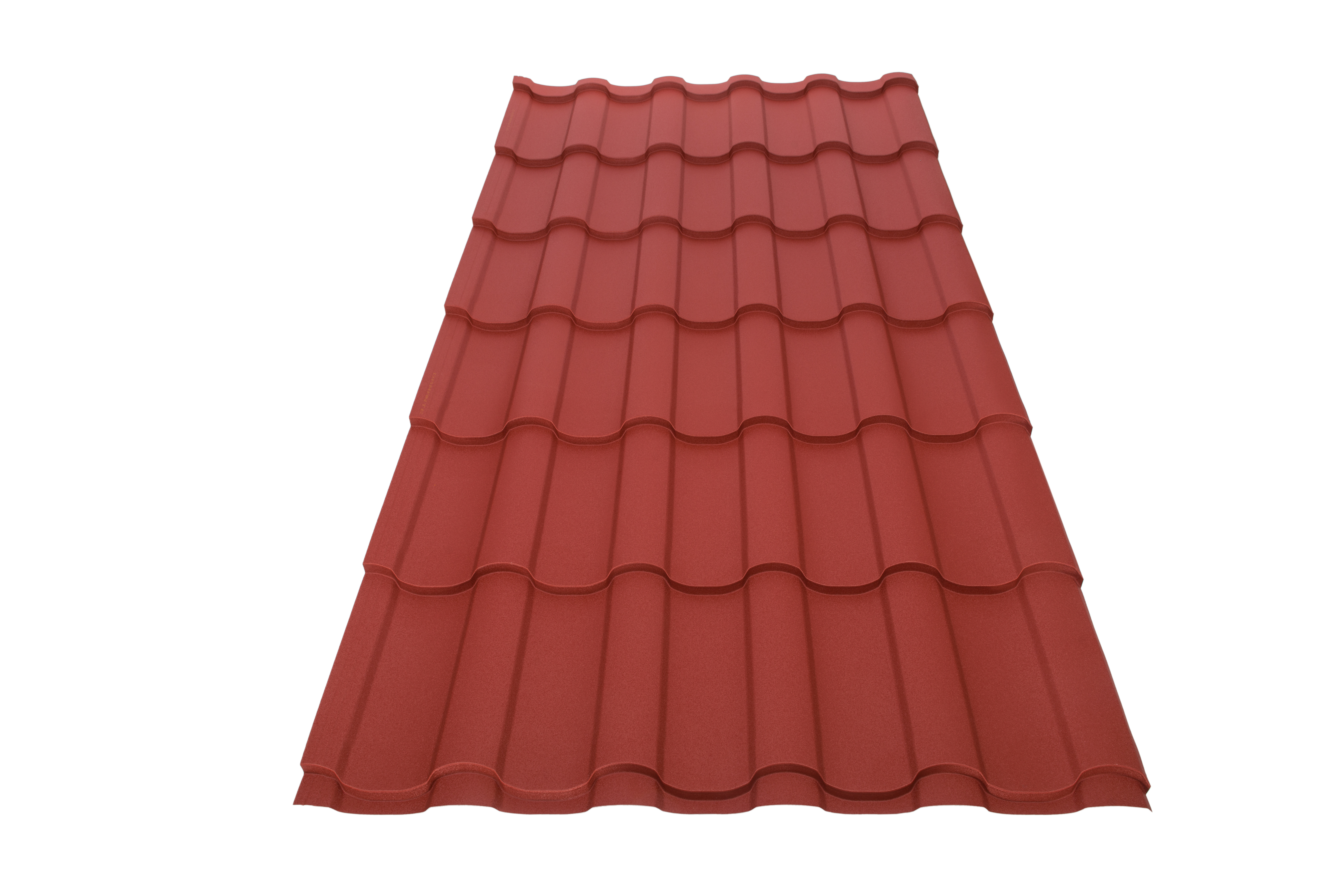
Stamped metal tiles and stone-coated steel metal roof panels are in an adjacent subcategory of metal roofing options. These are metal tiles that are designed to imitate other roofing materials like composites, concrete tile, and clay tile.
Popular roofing manufacturers include Decra, Boral, and Isaiah Industries (aka Classic Metal Roofing) to name just a few. When it comes to solar mounting hardware, QuickBOLT can proudly claim the title as the industry standard for mounting solutions. In fact, our mounts were designed in close collaboration with the manufacturers listed above.
Check out the Stone Coated Steel mounts catalog page to see our most recent product offerings.
Rubber Roofs
Rubber roofs are a classic choice most commonly found in commercial roofing applications. These roofs can be made of EPDM, TPO, or other popular polymers. Typically you would see these roofs installed in rolled sheets that are adhered together to form a waterproof seal.
Today, there are options available from manufacturers for residential roofs that are made to imitate other roofing styles. We'll add to this article as we learn more about the solar solutions available for these roofs.
Foam Roofs
Foam roofing is not all that uncommon but it certainly is a newer type of roofing material. It's chosen for its ease of install, durability, and lower cost. We go deeper into foam roofs in this article here.
